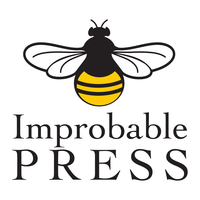By Atlin Merrick

I like labels.
No, that's wrong, I like labels which help.
Lots start out that way, but some labels are turned, used to marginalize, belittle, other.
The ones that help though? Oh, the clarity they can bring, the community they can create.
This is why I like the #OwnVoices label, a hashtag which popped up on Twitter a few years ago. At its simplest Own Voices means that if your main character identifies as part of a minority group, you the writer are also part of that group.
If an author identifies their story as Own Voices, it means, for example, a bi woman is behind that hero who's a bi woman, a disabled writer is penning that disabled character, #OwnVoices writers are saying I know what I'm talking about.
More
A Galaxy of Gay Glories—May the Fourth Be With You
Three Trick Questions About 'Cheating'
Why Write What You Know Also Means Write What You Don't
This is glorious if you're a young gay woman craving the stories of someone who's been where you are now, it's fantastic if you're a disabled kid now less alone because you know someone else gets it, people like you are sharing their lived experiences.
Improbable press wants #OwnVoices, we really, really want Own Voices.
However.
Identifying as #OwnVoices, Aye There's the Rub
As young as the #OwnVoices tag is, it's already hit snags.
In LGBTQ literature, for example, there can be "pressure to be an out author," writes Danika Ellis, or something can be deemed not Own Voices enough, as happened to Kosoko Jackson, a black, gay author taken to task for setting a story in 1990s Kosovo, about which, critics claimed, he couldn't have historical understanding.
For me the solution, as with most umbrella terms, whether Own Voices, PTSD, or queer, is to find the people who use it the way you do.
As a reader or publisher, I have no business asking an author if their work is Own Voices, but as a reader and especially a publisher, I have great pleasure in welcoming those who do identify that way, to support their books, without insisting they tell me how deep their identity goes. If they do I'm delighted, if they don't and their story is good, I'm still delighted.
Publisher's Want Own Voices
Publishers have a responsibility though: if a writer hasn't shared their identity and has a marginalized protagonist as their lead? Well often a press will do their best to have a sensitivity read of the book before it's published. That means asking a person from that community to read the book, so the publisher is sure there isn't accidental ableism, for example.
If you are LGBTQIA+, neurodivergent, BIPOC (another label, meaning black, Indigenous, and people of color), if you're a marginalized person with a gay adventure tale, a ghost story, a moody mystery, a paranormal romance, Improbable Press wants your book. If you identify as none of those things, we still want your stories and you can find out more with our submission guidelines.
Believe us when we say there's an entire community of readers out there that want to go along on the adventures you've imagined.
Share them.
